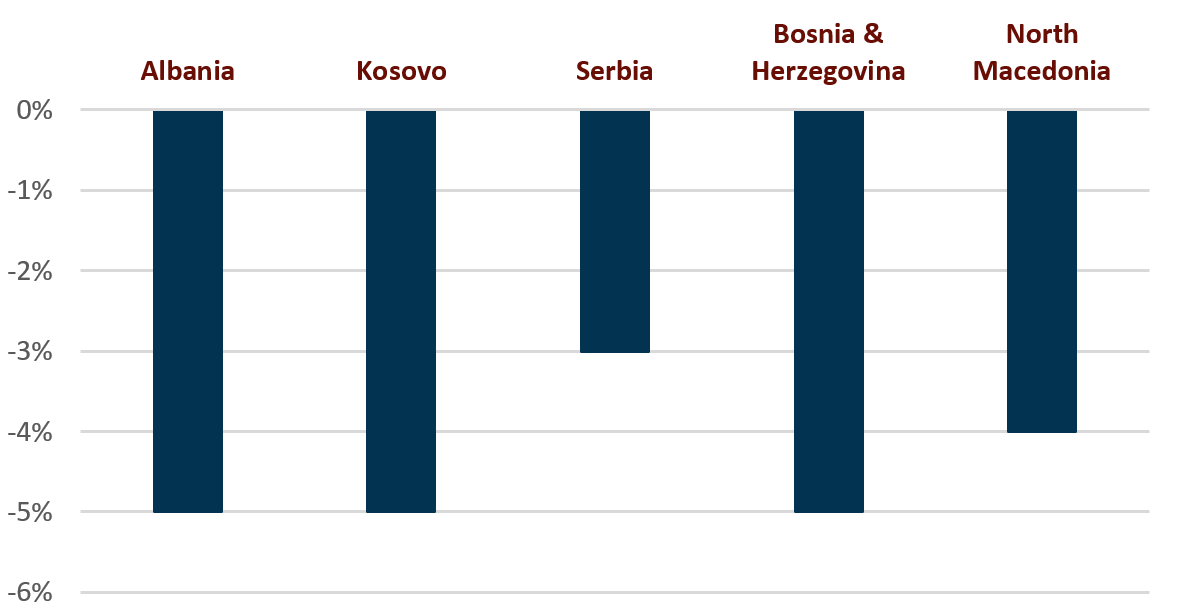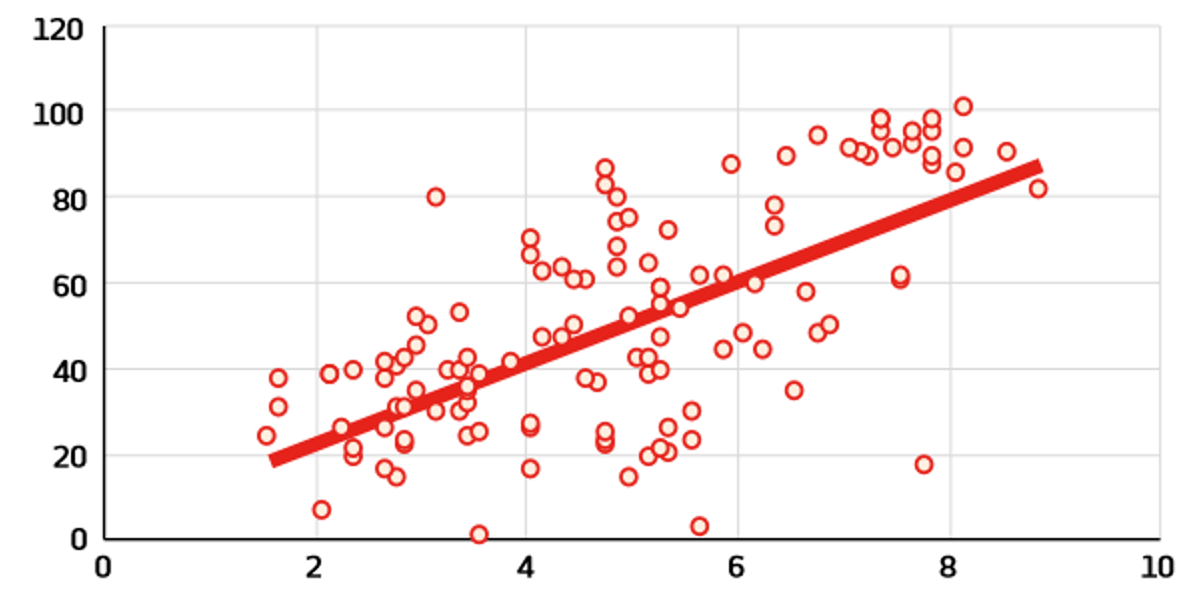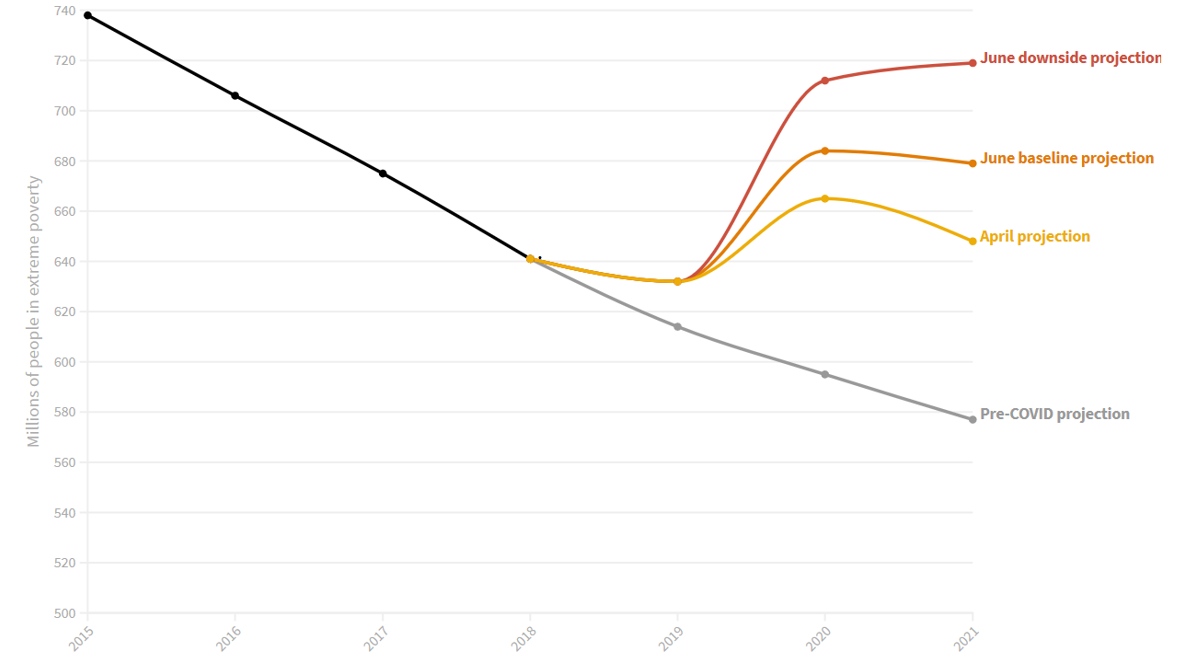As restrictions due to the COVID-19 pandemic begin to ease, the path to economic recovery remains highly uncertain and vulnerable. The pandemic and resulting economic disruptions have unmasked and amplified the inequalities of the global economic systems.
It has hit the most disadvantaged the hardest. Low-income groups; small-scale food producers; those with limited access to finance; municipal services and those who work in the informal sector suffer disproportionately.
Let us take some examples from the Western Balkans. In Bosnia & Herzegovina, the pandemic is destroying the economy as much as it is claiming lives. More than 30,000 people have lost their jobs. Younger workers are often the first to have their hours cut or be laid off. For recent and this-year graduates and for people who were unemployed before the crisis, the time ahead will be especially difficult.
In Kosovo, too, the pandemic has been a double whammy – bringing businesses to a halt and forcing the government, which has only been in power for 52 days, to fall. Many people have lost their source of income and the IMF’s recent forecast shows that the pandemic is causing the growth of Kosovo’s gross domestic product (GDP) to fall to -5% in 2020.
Figure 1. IMF forecast for negative GDP growth in the Western Balkans in 2020 due to the outbreak of COVID-19.

Given the extent of the impacts, is it possible to achieve a better future for all in post-COVID-19? It may be hard to deliver but not impossible. The pandemic offers opportunities for addressing some of the root causes of economic inequalities. For example, policymakers who scorned off the idea of a universal basic income are seriously discussing it now.
As another example, we can apply the aggressiveness to save lives and economic fallouts from COVID-19 to secure even greater investment in a carbon-neutral economy. Just 100 companies are responsible for 71% of global emissions. It is, unfortunately, the poor and other vulnerable groups who contribute the least to climate change (e.g. greenhouse gas emissions) but are the ones who suffer the most from climate change and its consequences.
A more inclusive economic system: it’s in everyone’s interest
In many countries, and particularly for those most vulnerable sections of our societies, the COVID-19 pandemic is a crisis within a crisis. It worsens the negative impacts of climate change, political fragility, economic inequality, hunger, and so on. It’s reasonable to describe it as a ‘polycrisis’—a health crisis to begin with, but becoming quickly hygiene, humanitarian, political, and socio-economic crisis.
There’s a growing body of evidence on how exclusion leads to economic and social ills. On the flip side, inclusive development is a proven driver of vitality and prosperity for all – with the potential of creating thriving communities, as well as better ideas and innovations. Diversity in leadership is correlated with financial outperformance. Inclusive economies recover better from the shocks of the COVID-19 pandemic: A one-point increase in social acceptance suggests a three-point increase in that economy’s economic resilience index, even when controlling for GDP per capita.
Figure 2. Social acceptance of a country (x) vs. its resilience score. ©Williams Institute, FM Global Resilience Index, Open for Business.

Beyond the moral imperative, this is a major risk to the huge achievements in reducing poverty and promoting social justice across the globe over the past few decades. Despite growing inequalities within and between countries, global extreme poverty has declined significantly. To put this into perspective, 44% of the world’s population lived in poverty in 1981; today, this has dropped to 8%. Unemployment has also been consistently falling and more people than ever have been in work.
According to some estimates, COVID-19 will push 71-100 million people into extreme poverty, reversing these positive trends.
Figure 3. The impact of COVID-19 on global extreme poverty. ©Lakner et al (2020), PovcalNet, Global Economic Prospects

A global crisis of such an unimaginable scale needs global action. It’s simplistic to view crisis as short-term events. Often, crises are the result of structural and complex socio-economic and governance issues. Thus, wealthy countries must not turn inwards as they weather the crisis. Business as usual, hopefully after the pandemic is contained, isn’t an option. The impacts won’t disappear sooner once a vaccine has been rolled out. People will increasingly question the endless pursuit of economic growth if few members of society are getting richer and others are working harder and harder just to maintain their living standard.
Should recovery efforts just reward shareholders through stock-buyback schemes, frustration could lead to increased migration or societal fragmentation. Let us take Southeast and Eastern Europe where young people are faced with very limited opportunities for employment and career development in the next few years or more. That will intensify existing aspirations of youth to migrate to the developed European countries. Developed countries are facing massive job losses and shrinking opportunities. This may lower down, even though briefly, the rate of migration.
The consequences of the polycrisis are many, especially in fragile contexts. This requires for any response to be as much as possible inclusive and forward-looking (well beyond the pandemic).
It’s also possible to see a new wave of populism, born out of COVID-induced economic inequities.
Action is possible
Our economic and social prospects for the next decade depend on today’s actions. As Yuval Harari put it nicely, ‘this storm will pass. But the choices we make now could change our lives for years to come’. We may or may not need a ‘Marshall plan’ for the global economy ravaged by the pandemic. However, there can be no half-measures.
While there aren’t ‘ready-made solutions’ to exclusion and poverty, there are several good practices that have invested in substantial efforts and resources and consequently made good progress in including women and other social groups. Being inclusive goes beyond the moral imperative of ‘doing good’. It’s a fundamental ingredient to achieving growth and wellbeing.
Governments are rushing to support and keep businesses and people afloat by minimizing the economic damages caused by the COVID-19 lockdown – and rightly so. Before the pandemic, governments were reluctant to spend money on the grounds of swelling public debts. The main reason hasn’t been financing, but political will.
The bailouts can be an opportunity to address, for example, corporate tax evasion, which often burdens poorer states. France, Poland, and Denmark have already decided they wouldn’t bail out companies registered in offshore havens. Making the support packages conditional to proper business practices can reward ethical behavior among business owners and support post-COVID recovery efforts.
64% of respondents agreed with this statement according to the 2020 Edelman Trust Barometer.
For effective action with long-lasting and inclusive results, two critical actions are necessary.
First, the post-COVID-19 economic system needs to be seen as a multi-stakeholder initiative. It involves not only public-sector actors but also the private sector, development, and civil society organizations. Jodie Thorpe, a researcher from the Institute of Development Studies (IDS), argues that inclusive and responsible development requires ‘having the right expertise, involving the right people, thoroughly understanding the context.’ This means that we need to ask ourselves: who’s best fit to contribute to a more inclusive economic system and under what kind of context?
Second, a more inclusive economic system isn’t just about financing. The official development assistance (ODA) coming from governments stands globally at 0.3% of gross national income, which is way below the commitment made by many governments to achieve the target of 0.7%. And it is indeed important that it doesn’t decrease due to the pandemic but increases because of it – as the poorest countries are hit the hardest by COVID-19 (after all, ODA already proved to be recession-proof in the past). However, the ODA needs to be complemented by the mobilization of different domestic (improved tax system, better fiscal policy) and international resources (foreign direct investment, diaspora engagement, and private sector contributions).
67% of respondents agreed with this statement according to the 2020 Edelman Trust Barometer.
Let us take social protection programs to which more investments – either from ODA or other sources – are needed more than ever. Given the extent of the impacts of the COVID-19 crisis, such schemes are critical and effective in creating a healthy and thriving society – from child and family benefits to employment benefits and old-age pensions. The cost of letting millions of people fall into poverty due to COVID-19 can be, beyond just being immoral, of an unprecedented magnitude. Providing access to social protection schemes can be costly.
Only 29% of the global population has access to comprehensive social security systems in all areas. Studies have found that the return to investment (not expenditure by the way) of social protection schemes always outweighs the cost. Equally important, social protection programs are more than economics; they are part of basic human rights. Unless we get this right, COVID-19 will be yet another force of exclusion and discrimination that will worsen inequality. If there’s a political will, most countries can reprioritize public expenditure, thereby significantly increasing resources available.
In addition to financing, other challenges of social protection programs include targeting, complex registration systems, and insufficient information to beneficiaries. Yet, countries like Rwanda (Vision 2020 Umurenge Programme –VUP), Mexico (PROSPERA), Brazil (e.g. Fome Zero), and Ethiopia (multiple: cash transfer schemes, community-based health insurance) have put into place good social protection programs.
Conclusion
The lack of coordinated global leadership to tackle a problem of this magnitude is shocking, and let’s face it – disappointing. Choices made now will have far-reaching consequences. It is in times of such global uncertainties that the most vulnerable can be left out-of-sight, out-of-mind.
Subscribe to Helvetas Mosaic
Our articles explore new trends and fresh ideas of international development work in Southeast Europe.
Get inspired with our insights.
Do you agree or disagree with the authors?
Post about it on Linkedin tagging us (@Helvetas Eastern & Southeastern Europe) and let the discussion begin! By following us, you can also learn about our new vacancies and calls for proposals.




